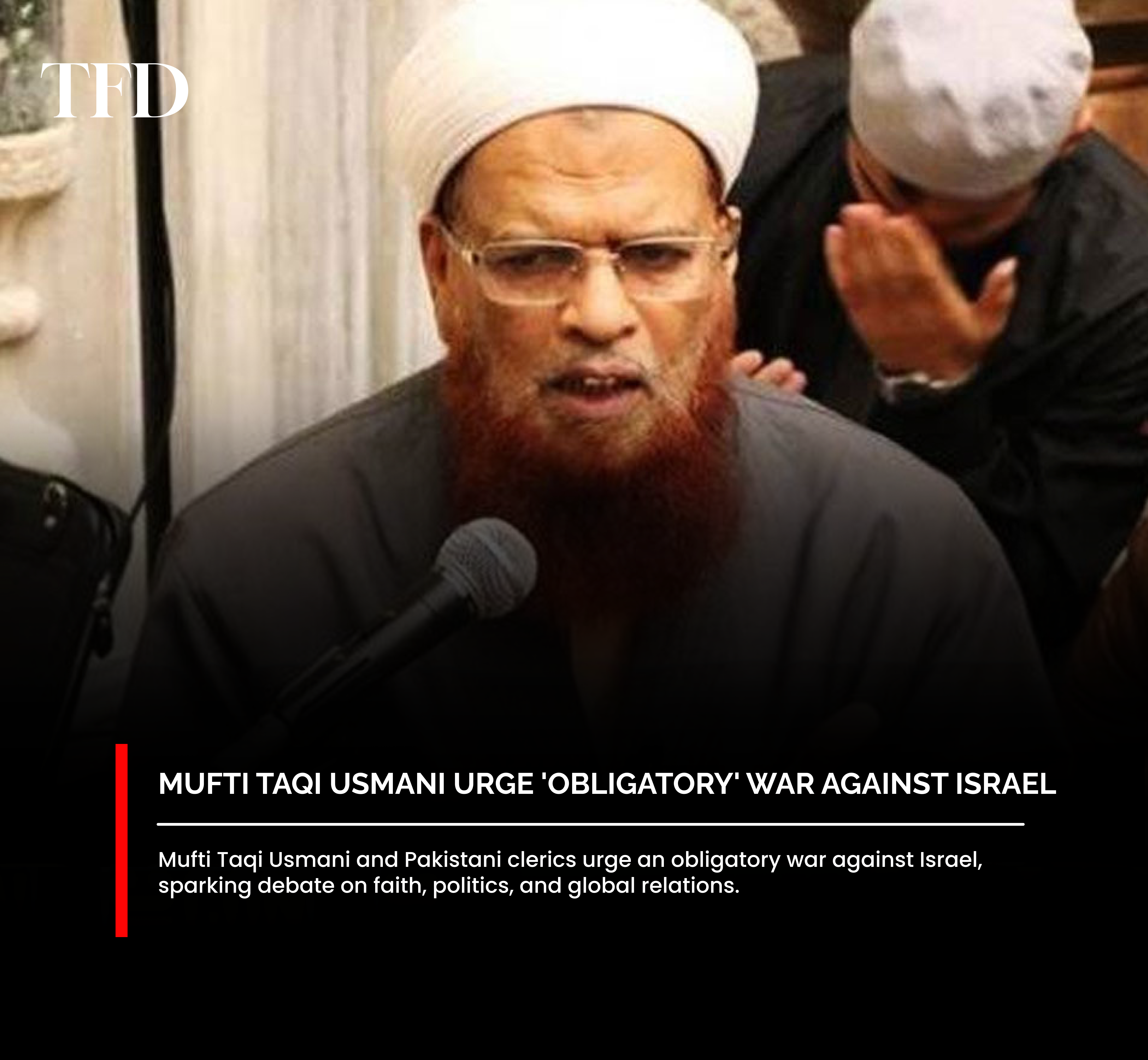In a time of geopolitical tension, a significant call has been made by some of Pakistan’s most influential clerics, including Mufti Taqi Usmani, urging an obligatory war against Israel. The appeal, grounded in religious and political rhetoric, has resonated deeply across the region, invoking both support and criticism. But what does this mean for the future of the Middle East, Pakistan, and the wider Islamic world?
The Religious and Political Foundations of the Call
Mufti Taqi Usmani, one of the most respected Islamic scholars in Pakistan, has long been known for his conservative views on various global issues. His recent remarks regarding the obligation of fighting Israel are seen as a rallying cry for the Islamic community, especially in light of Israel’s continued actions in Palestine.
According to Usmani and his fellow clerics, the fight against Israel is not just a political matter but a religious duty, one that aligns with Islamic teachings. They argue that the oppression of Muslims in Palestine under Israeli occupation calls for a unified response from the Muslim Ummah. For these religious leaders, the message is clear: it is not only a right but a duty for Muslims to defend their fellow believers against what they perceive as an existential threat posed by Israel.
The notion of Jihad, in this context, is rooted in this perspective, which is regarded as a defense of the Muslim community and a direct response to what is perceived as violations of Islamic principles and human rights.
A Divisive Call to Action
The clerics’ call to arms has sparked considerable debate in Pakistan and beyond. Supporters of the move argue that it is a necessary step in defending the rights of Palestinians. Who have suffered under Israeli control for decades. They see this as an extension of their religious duty to fight oppression and protect fellow Muslims.
On the other hand, critics warn that such rhetoric could further escalate violence in an already volatile region. Some fear that a call for war could ignite widespread conflict not only between Israel and Muslim nations. But also destabilize other parts of the world. Critics also argue that while the fight for justice is important, the emphasis on military action could detract from diplomatic efforts to achieve lasting peace.
The Geopolitical Ramifications
The call to action by Pakistan’s leading clerics is a reminder of the significant influence that religious leaders have over public opinion in the Muslim world. For Pakistan, a nation with a complex relationship with Israel, this appeal could shape the country’s foreign policy and domestic outlook on global conflicts. Pakistan’s stance on Israel has traditionally been one of strong opposition, largely due to its support for the Palestinian cause.
However, the call for a religiously charged war may have broader implications for the region. It risks inflaming tensions not just with Israel but also with Western powers that have historically been aligned with Israel. At the same time, it could strengthen alliances within the Muslim world. Particularly with countries that share Pakistan’s stance on Israel.
A Broader Religious and Ethical Debate
The ongoing conflict between Israel and Palestine continues to be a defining issue for Muslim communities worldwide. The question of how best to respond to perceived injustices remains a contentious topic, especially when it involves religious obligations.
The message from Mufti Taqi Usmani and other clerics brings to the forefront the complex intersection of faith, politics, and international relations. It forces Muslim nations to confront questions about their collective responsibility. The use of military force, and the pursuit of peace through diplomatic channels.
What Comes Next?
As the call for obligatory war against Israel reverberates through Pakistan and beyond, the world watches closely. Will it result in a new wave of mobilization among the Muslim world’s military and civilian populations? Or will it spur more voices to seek peaceful solutions? Time will tell.
For now, the message is clear: the fight for justice, as framed by these clerics, is one that transcends borders. Inviting both fervent support and serious opposition. In an age where global conflicts are increasingly influenced by religious narratives. This declaration serves as a stark reminder of the power of ideological leadership in shaping international affairs.
Also read: Beyond Books: Unique Donations Libraries Love
Read – Palestine









